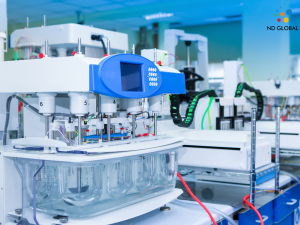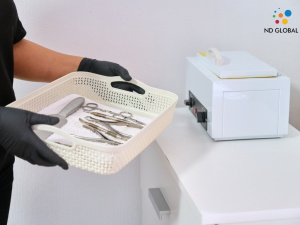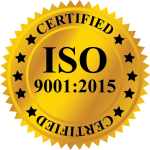Introduction – The Annual Product Quality Review (APQR) in the pharmaceutical sector is crucial for evaluating product quality and guaranteeing regulation adherence. This thorough assessment procedure considers several important elements that support continuous assurance and verification of pharmaceutical items on the market. We may better comprehend the complex nature of APQR and its varied effects on product performance verification by delving into the ideas of burstiness and confusion.
1) Regulatory Compliance: APQR is essential to maintaining adherence to rules and regulations established by agencies like the FDA or EMA.
2) Product Performance Evaluation: APQR thoroughly assesses a product’s performance throughout its lifecycle, considering factors such as stability, manufacturing, formulation, and quality control.
3) Identification of Quality concerns: By assisting in the timely detection of any quality concerns or deviations from specified standards, APQR enables preventive and corrective measures.
4) Trend Analysis: One of the critical components of APQR is the examination of quality data patterns over time to spot possible hazards and areas in need of development.
5) Continuous Improvement: By offering insights into process improvements, quality control procedures, and product optimization, APQR fosters a culture of continuous improvement.
6) Documentation and Reporting: To ensure accountability and transparency, APQR mandates comprehensive documentation of the review procedure, conclusions, and actions taken.
7) Risk Assessment: An integral part of APQR, risk assessment aids in prioritizing areas of
concern and strategically allocating resources to reduce risks.
8) Post-Market Surveillance: APQR goes beyond manufacturing to include post-market surveillance to ensure continued product quality and safety monitoring.
9) Cross-functional collaboration: APQR requires cooperation between several departments, such as manufacturing, research and development, regulatory affairs, and quality assurance.
10) Adherence to Good Manufacturing Practices (GMP): APQR conforms to GMP criteria, guaranteeing pharmaceutical industry adherence to quality standards and procedures.
The Product Quality Review Process’s general phases:
Conducting a Product Quality Review (PQR) generally comprises multiple main steps. These are the stages that are frequently followed, though the precise actions may differ based on the business and industry:
1) Data Collection: Compiling pertinent information about the product’s quality attributes is the first step in the process. This contains data from various sources, including production records, the outcomes of quality control tests, stability information, customer complaints, and unfavourable incidents.
2) Data Analysis: To find trends, patterns, and possible areas of concern, the gathered data is examined and analyzed in this step. A product’s performance over time may be analyzed using statistical tools and quality control methods.
3) Deviation and Out-of-Specification Investigation: A thorough investigation is conducted into any deviations or outcomes that are out of specification during the data analysis phase. This entails identifying the underlying reasons, evaluating the effect on the calibre of the final product, and putting the necessary preventative and remedial measures in place.
4) Trend Analysis: To find any reoccurring problems or patterns pointing to possible quality hazards, trend analysis looks at past data and performance trends. This study aids in predicting quality concerns and proactively resolving them.
5) Compliance Assessment: Part of the PQR process is determining whether corporate quality standards, applicable guidelines, and regulatory obligations are met. This guarantees that the product satisfies all requirements and conforms to all relevant laws.
6) Review and Reporting: Based on the data analysis, investigations, and compliance evaluation, a thorough review is carried out. A comprehensive report contains the results, information on any problems, the steps to address them, and suggestions for future development.
7) Management Review: After receiving the PQR report, the management group discusses and assesses the conclusions and suggestions. This stage guarantees that the activities and resources required to address recognized quality concerns successfully are assigned.
8) Continuous Improvement: Putting the suggested changes into practice and assessing their efficacy constitute the last phase. To improve product quality and stop problems from happening again entails implementing preventative measures, updating standard operating procedures, and changing manufacturing methods.
Annual Product Quality Review (APQR) benefits for the pharmaceutical sector.
Improved Quality of Product: Early detection and resolution of any quality concerns are made possible by the systematic and comprehensive evaluation of product quality that APQR offers. This results in enhanced overall performance and quality of the product.
Regulatory Compliance: To preserve market authorization and live up to regulatory bodies’ expectations, APQR ensures that regulations are followed.
- Risk Identification and Mitigation: Proactive risk mitigation techniques are made possible by APQR’s ability to identify potential hazards in product quality, manufacturing processes, and supply chains through in-depth evaluations and trend analysis.
- Continuous Improvement: By pinpointing opportunities for improvement in quality control systems, manufacturing procedures, and product design, APQR promotes a culture of continuous improvement. As a result, processes are optimized, and efficiency rises.
- Data-Driven Decision-Making: To make well-informed decisions, APQR collects, analyses, and interprets data to provide insightful information. This data-driven methodology guarantees impartial assessment and promotes evidence-based enhancements.
- Prevention of Recurrence: By identifying the underlying causes of quality problems and implementing remedial and preventative measures, APQR lowers the likelihood of product recalls and non-compliance.
- Supply Chain Optimization: Contract manufacturers, suppliers, and other parties interested in the pharmaceutical supply chain are assessed for performance and compliance by APQR. This promotes constant product quality and improves supplier relationships.
- Enhanced Patient Safety: APQR helps to ensure the safety of patients who depend on pharmaceutical products by upholding strict quality standards and addressing potential dangers. This demonstrates the dedication to the health of the patient.
- Audits and Documentation: APQR requires thorough records of the review procedure, conclusions, and actions performed. This documentation proves compliance and attention to quality standards and is helpful for internal and external audits.
- Industry Reputation and Trust: By demonstrating a dedication to quality, compliance, and ongoing improvement, APQR helps to build stakeholders’ trust, including patients, regulatory authorities, and healthcare professionals, as well as the reputation of pharmaceutical businesses.
Conclusion – The Annual Product Quality Review (APQR) is a critical process in the pharmaceutical sector, ensuring product quality, regulatory compliance, and continuous improvement. By evaluating various elements such as regulatory compliance, product performance, trend analysis, and risk assessment, APQR facilitates early detection and resolution of quality concerns while promoting a culture of continuous improvement. Through data-driven decision-making, proactive risk mitigation, and supply chain optimization, APQR enhances product quality, patient safety, and industry reputation. Ultimately, APQR is a cornerstone for pharmaceutical companies to uphold quality standards, meet regulatory requirements, and foster stakeholder trust.
ND Global provides comprehensive support for the Annual Product Quality Review (APQR) process in the pharmaceutical sector. Our services include:
- Regulatory Compliance Assistance: We ensure that your APQR process adheres to regulations established by agencies such as the FDA or EMA, helping you maintain market authorization and meet regulatory expectations.
- Data Collection and Analysis: Our team helps you compile relevant data from various sources and analyzes it thoroughly to identify trends, patterns, and areas of concern.
- Deviation and Out-of-Specification Investigation: We conduct in-depth investigations into any deviations or out-of-specification outcomes, identifying root causes and implementing preventive and corrective measures.
- Trend Analysis: ND Global conducts trend analysis to identify recurring problems or patterns that may indicate potential quality hazards, enabling proactive resolution.
- Compliance Assessment: We assist in assessing whether corporate quality standards, guidelines, and regulatory obligations are being met, ensuring that your products satisfy all requirements and conform to relevant laws.
- Review and Reporting: Our team conducts a comprehensive review of the APQR process and prepares detailed reports containing findings, actions taken, and recommendations for future improvement.
- Management Review Support: We support management in discussing and assessing APQR conclusions and suggestions, ensuring that resources are allocated effectively to address identified quality concerns.
- Continuous Improvement Initiatives: ND Global helps implement suggested changes and assess their effectiveness, promoting a culture of continuous improvement in quality control systems, manufacturing procedures, and product design.
- Supply Chain Optimization: We assess the performance and compliance of contract manufacturers, suppliers, and other supply chain partners, promoting constant product quality and improving supplier relationships.
- Audits and Documentation: Our team ensures thorough documentation of the APQR process, conclusions, and actions taken, facilitating internal and external audits and demonstrating compliance and attention to quality standards.
ND Global’s expertise and support help pharmaceutical companies optimize their APQR processes, enhance product quality, ensure regulatory compliance, and foster stakeholder trust.










